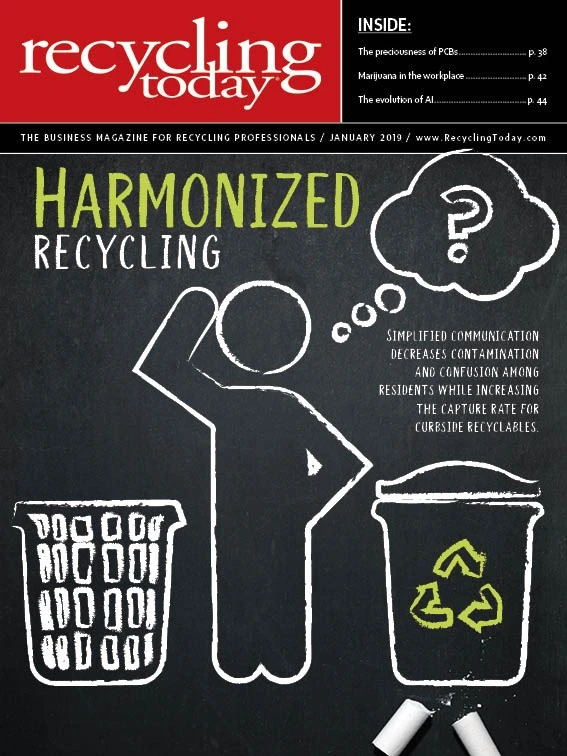
Sam Shine
director of business development at Utility Recyclers International
Sam Shine always jokes that copper’s in his blood—he grew up in a family that operates Manitoba Corp., Lancaster, New York. The company’s specialty is recycling nonferrous metals, mainly copper.
Shine began working in the recycling industry full-time about three years ago as director of business development for Utility Recyclers International, which serves as a joint venture between Manitoba and Green-Port Environmental, Georgetown, Ontario. He says he’s the fifth generation to work in the family business.
Recycling Today connected with him to learn about what got him into the industry and what he sees as concerns and opportunities in recycling.
Recycling Today (RT): How were you first introduced to the recycling industry?
Sam Shine (SS): I grew up around the recycling industry, and I remember talking about copper and recycling and the recycling business in general with my dad (Brian Shine) from a very early age. So, I can remember many dinners and breakfasts around the kitchen table, kind of talking about what my dad does for work every day.
My first real exposure to recycling came in 2009. And that was during my first winter break home from Colorado State University. During that time, I drove around Buffalo, New York, in a pickup truck, picking up electronics across the whole city. It was a good entryway to the recycling business.
RT: What do you see as the biggest issues affecting the industry today and why?
SS: I think the biggest one on everyone’s mind is the export markets. A sort of picture for what’s going on in the export market is a game of whack-a-mole, where you have one export option come up, then it quickly goes down, then another one comes up, and it goes down, versus what had been going on for decades, and that is China was always a steady buyer of U.S. scrap. But times are changing that way. I think that recycling companies need to adapt to that and come up with new plans for where to send these materials.
Beyond that, I think a couple smaller things that are always potential issues are rising transportation rates, labor availability. But I think that the biggest challenge is certainly export options. Because ultimately, we need customers and we need places to go with this material.
RT: Overall, where do you see the industry headed the next five years?
SS:If you look at growth rates across the whole world [and the] rise of consumerism, all this bodes well for the recycling industry.
RT: What new technologies do you hope to see the industry embrace?
SS: I think the two that are talked about all across the world are artificial intelligence and automation. I think that a lot of people are sort of nervous about these technologies and think it could put a lot of people out of work, and, you know, perhaps they’re right. But I don’t see it that way. I think of it as a complement to our staff now.
RT: What do you enjoy most on working in recycling and what are ways to recruit new professionals to the industry?
SS: I enjoy having meaning in my work. I think millennials are much more purpose-focused than money-focused versus other generations. I think that the recycling industry, if they’re looking for meaningful work, is certainly a good place to be in terms of not only having an impact on the economy but also on the planet in a positive way, which not many industries can do.
I think that as recyclers pitch that the industry is fast-paced, exciting, meaningful, unique, we’ll be able to attract the best of the best.
Get curated news on YOUR industry.
Enter your email to receive our newsletters.
Explore the January 2019 Issue
Check out more from this issue and find your next story to read.
Latest from Recycling Today
- ReMA opposes European efforts seeking export restrictions for recyclables
- Fresh Perspective: Raj Bagaria
- Saica announces plans for second US site
- Update: Novelis produces first aluminum coil made fully from recycled end-of-life automotive scrap
- Aimplas doubles online course offerings
- Radius to be acquired by Toyota subsidiary
- Algoma EAF to start in April
- Erema sees strong demand for high-volume PET systems





